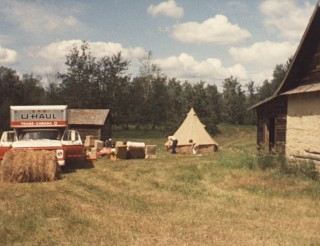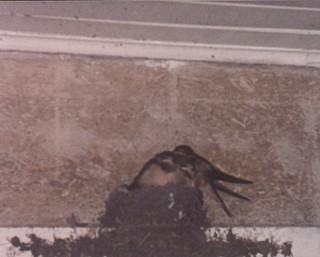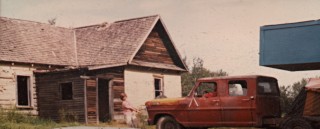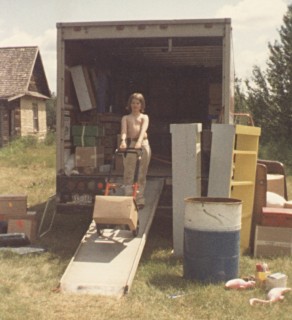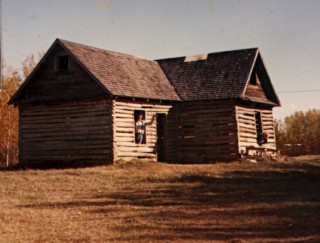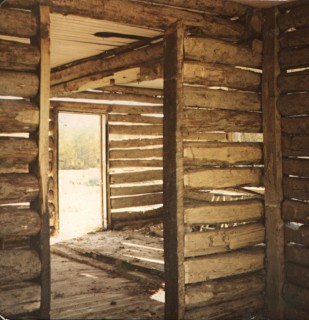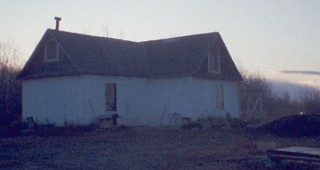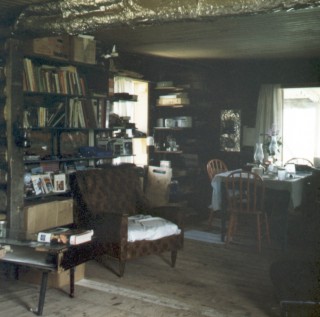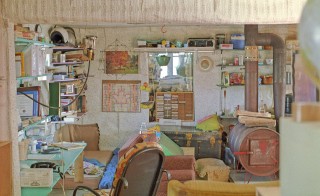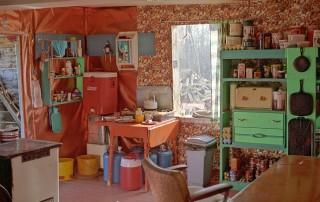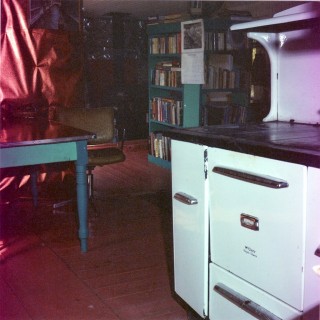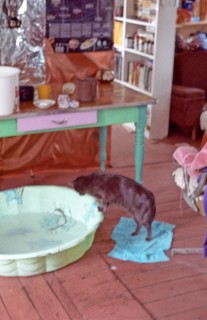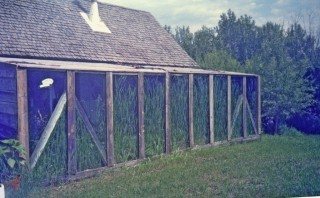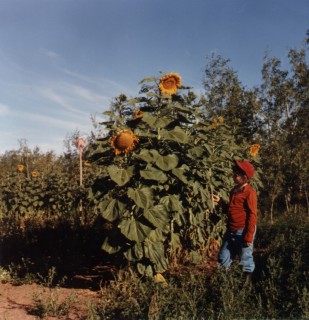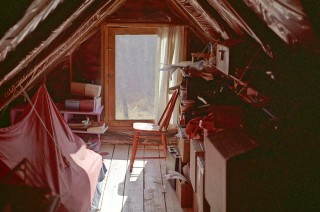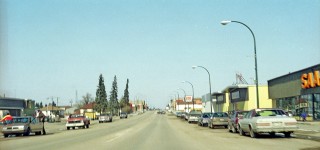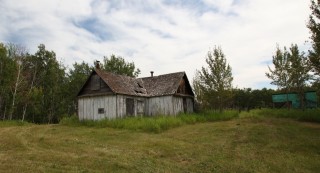The Day the Earth Kept On Truckin’
(This was originally written in 2002. I’m reposting it as part of decommissioning my old website. It’s interesting how little has improved and some things have gotten worse in the time since.)
Written October 7, 2002.
Everybody and their dog seems to have felt compelled to comment on the events of September 11, 2001. Not me. Well, at least not until now, over a year later. I’ve hardly discussed the event with anyone in that time, nor do I have particularly strong feelings about it. I guess I’m writing this mainly to point out that not everyone was galvanized by the terrorist attack of that day.
Do You Remember Where You Were When…?
I remember the outline of what I did on 9/11. I got up, did the morning rituals, and got on the bus to school. On the bus I encountered a fellow from the graphics lab, and sat beside him as is mandated by law when encountering someone you know on the bus with an empty seat nearby.
I was saved the bother of trying to make conversation because he quickly opened up by asking if I had heard about the incident in New York that morning. I hadn’t. He said that an airplane had crashed into one of the World Trade Center towers and it was on fire. That was morbidly interesting enough to make me rouse from my morning stupor and pump him for information. He didn’t really have much more for me.
It was a fairly busy afternoon at school and I didn’t really have time to check the news. At one point I had to walk across campus and noticed that the A/V department had wheeled a large TV out into the hallway and there were about fifty students gathered around it like kids watching the news. I saw some shots of smoke coming from the buildings but didn’t stick around; I figured I could catch the repeat on the evening news when I got home.
When I got home and turned on the news, I was unsurprised to learn it was a terrorist attack. I was mildly surprised that they were creative and resourceful enough to turn airliners into weapons. The biggest surprise was that the towers had actually collapsed.
I was glued to the news channels as much as possible for the next three days, and I left the VCR running when I had other things to do. I got about 24 hours of news on tape, but most of it turned out to be repetitions of the pathetic footage of the money shots, with more occasionally being added as another tourist contributed the contents of his camcorder.
Then
I had no great reaction to the event itself. The WTC towers were a bloody obvious target for any would-be terrorists, and had been the subject of an attempted bombing a few years earlier (which also failed to surprise me). I had no illusions about the future being terrorism-free; these things happen, and America being the world’s current 900lb gorilla makes it an obvious target for nutcakes everywhere.
I was, however, filled with curiosity about the disaster itself and the cleanup effort. I sought out as much footage and imagery as I could find for the next week or so. I was eager to know what had happened inside the towers up until there was no longer an inside. I tried to imagine what must have gone through the minds of the people who jumped from the burning tower.
Some might call this morbid curiosity and say there is something wrong with it. I don’t care; it was fascinating. I was disappointed at not being able to find much imagery of the gory deaths, but at the same time I knew I probably would have been pretty grossed out by some of what the rescue workers were no doubt finding in the rubble. I’m confident that the forensics photos will eventually show up on some website specializing in the grotesque though.
Later
My stronger reactions to the September 11 terrorist attacks came later, and were inspired not by the events but by other peoples’ reactions to the events.
Shortly after the attacks, President Buh went on the air promising to bomb the stuffing out of any country found to harbour terrorists. My first thought following that was, “Way to let the bad guys win, George!”. I already knew he wasn’t the brightest bulb in the house, but at this point my opinion of him went negative and has stayed there ever since.
Since some people seem to have a hard time understanding my problem with that speech of his, it’s this: Baby, bathwater. By all means find the terrorists and slap them around, but send a clear message by not harming any innocent civilians in the process. By threatening indiscriminate bombing of general areas where terrorists might be, America was itself using terror tactics.
In the year following the attack, it became pretty apparent that the terrorists had won an enormous and heavily ironic victory. Sure, they probably only intended to knock over some buildings, scare some people and kill some people. Sure, they ended up getting their asses kicked hard. By conventional military assessment, the 9/11 operation would end up being a net loss for the terrorist’s side.
But the terrorists ended up winning big in terrorism terms, and that victory was handed to them on a silver platter by their enemies. They won by damaging the freedom and liberty that America is so proud of, and they won by making America do the damage to itself. Instead of extending a middle finger to the terrorists and saying, “Fuck you, we’re not going to let you scare us,” the Buh administration started buttoning up security at the expense of its own citizens’ freedom and privacy. Evidently the terror tactic worked extremely well.
Other entities benefited from the attacks as well; the cash-strapped airlines got a huge booster shot to tighten security, law enforcement agencies got increased power to circumvent inconvenient rights and freedoms, and the government got some extra leverage with which to lean on other governments. The attack was also a boon to the folks campaigning for privacy invasion via surveilance (and their other brother, the anti-encryption crowd), and to those trying to regulate the Internet.
For a while there, it looked like there was going to be a return to McCarthyism as everyone was overreacting to the slightest imagined hint of possible terrorist activity within the United States. People started reporting on their neighbors who just happened to be muslims or turban-wearers. Internment camps for suspicious-lookin’ American citizens were proposed. The Minstry of Truth was founded.
Now
Over a year later, not much has improved. Supposedly it is known who masterminded the attacks, and supposedly there is proof of his responsibility. He hasn’t been found (and neither has O.J. Simpson found his Real Killer yet). Some terrorists have been identified and captured. Afghanistan got the shit kicked out of it. George is using this terrorism thing as a very thin excuse to lean on Iraq. There is no doubt that he’ll parlay all this into a re-election.
But it’s worth keeping this all in perspective. Outrageous as the last year’s politics may seem to today’s sheltered youth, it’s still not nearly as bad as the ass-reaming that American citizens got during the second world war, and they recovered from that.
One thing that annoyed me about the whole media presentation of this stuff was the name: The War on Terrorism. I know marketing types have wet dreams about coming up with a name like that, but it’s misleading; terrorism is an idea, folks. You can’t locate it and destroy it. The best you can do is kill anyone who has heard of it, but it will eventually spontaneously reappear. Terrorism may not be the best way to make a point, but it’s one that will occur to any idiot with something to prove even if he hasn’t heard of it before. In short, a war on terrorism will never, can never, have a conclusive end. There’s always another terrorist cell lurking in mom’s basement.
Oddly enough, there is a noticable lack of similar names for the other big campaigns going on these days: The War on Freedom, the War on Privacy, the War on Fair Use, the War on Innovation, and the War on Common Sense.
To wrap up, let’s get back to the original topic: how 9/11 affected me. I can’t say it hasn’t. I wasn’t shocked or outraged by the event as everyone else seems to have been. I don’t know anyone involved or killed. I don’t particularly care that 3,000 presumably innocent Americans died in the towers, especially given that ten times that number die of simple ailments every year. The effects I feel have come and will continue to come from the political reaction.
The United States is one of the two biggest influences on the politics of my country, and already we’re seeing our own government start to suggest invasion of our privacy in the name of law enforcement.
Finally, I have no plans to fly again any time soon. Not because of hijacking or bombing risks; those risks are the same as ever. I’m not going to fly again because of the increases in airport security. I think it’s ridiculous to inconvenience travelers even more than they already were. It’s not going to solve any problems, and indeed it has already created some appalling new problems in the area of customer relations. Screw that, I’m taking the bus.
There’s a lot more I could say about this whole subject. I could comment on the many related issues that I’ve seen others comment on, like the 9/11 morning play-by-play or the Anthrax scare. But I’ve said enough for today; maybe I’ll add more some other time.
Life on (our) farm
People seem to be amused when I tell tales of my life in Manitoba, so I thought I’d post a more detailed account with photos.
In the early 1980s my parents purchased 80 acres in rural Manitoba, with an ancient log cabin on it, and we moved there. I think we stayed for most of three years, and then again for a couple more years in the early 1990s. Today I’ll just talk about the somewhat rustic living conditions I had the pleasure of experiencing.
The cabin was a small three-room affair built of logs and insulated with a mixture of mud, straw and manure, which was common in the pioneer days (judging by what the neighbors told us, this cabin was probably built around 1900, give or take a couple of decades). The attic was of slightly more modern construction, having wooden shingles, a cut lumber frame and adding a finished wood ceiling to the ground floor. It hadn’t been lived in for a long time when we arrived; the windows and doors were long gone and birds were nesting inside.
These photos, taken when we were unloading our moving truck, give some idea of what it looked like and the finish on the walls:
The first thing we (meaning my father) did to make the place habitable was to knock out all the mud insulation
and then fill in the gaps with modern insulation, install doors and enlarged windows, and wrap the outside walls in plywood to deflect the wind. He also knocked out the interior walls to make it feel more spacious, so there was just one room downstairs and one up. After all that, the house looked like this:
Here’s what the interior looked like after we moved our stuff in.
There was no electricity here, and we couldn’t afford to get it installed. On the table to the right you can see a couple of the oil lamps we used for lighting at night.
To brighten things up, we painted the floor and wallpapered the interior with light colored wallpaper and shiny foil. Later we got a Coleman gas lamp, which was really bright but also made a lot of noise and gave off fumes.
In the above picture you can see the oil drum stove my father made – the wood-burning kitchen stove we bought (shown in the kitchen photos below) was insufficient to heat the place in the winter, though it made great bread. If you look closely at the photo below, you can see that we also brought in the propane cookstove from our camper – but that was only good for cooking things and not for heating. We preferred the propane stove for summer cooking because it didn’t produce excess heat and didn’t take time to get going, but the wood stove was essential in winter.
There was no water here. The well that had once been on the property had filled itself in. No streams, and lake and pond water is dangerous to drink. We also couldn’t afford to have a new well drilled, so we had to truck it here ourselves in 5-gallon camping jugs, seen under the orange table in the upper photo. Nearby water sources weren’t reliably clean, so most of the time we got our water from the town of Rossburn, which was about 25 miles away. In the first kitchen photo above, in the corner you can see an antique washing machine that we used to store washing water, and the big camping thermos on top of it was for drinking water. The orange pails on the floor were used to take waste water outside.
No water means no plumbing, of course, and without electricity you do not want to have to use an outhouse in the winter here. Our toilet was a big pail with a seat on it, placed near an upstairs window with a view of the woods, and with a curtain on the indoor side for privacy. It had to be emptied about twice a week. Bathing involved standing in a kiddie pool and pouring water on yourself from a bucket using a cup. Here’s the bathtub set up in the kitchen, as verified by our cat:
In winter we could melt snow for bathing water, so we didn’t have to make water runs quite so often.
The one utility we did get installed was a telephone, which was essential for my father to find work. It was a party line, shared with our two nearest neighbors (1/2 mile and 1 mile distant, respectively). Incoming calls signaled the intended household with distinctive rings – short ring for one, long ring for another, and two long rings for the third. If you wanted to make a call you had to first pick up the handset to verify the line wasn’t already in use. Occasionally a change in the line noise made us suspect that one or another of the neighbors was eavesdropping on our calls.
We also had a battery-powered radio. CBC national radio was pretty darn good in those days, and we passed a lot of time listening to Peter Gzowski’s “Morningside” talk radio, Lister Sinclair’s “Ideas” for science news, Arthur Black’s amusing “Basic Black” op/ed show, and Jackie Farr’s weekend comedy hour “The Radio Show”. I still think of Peter Gzowski as the voice of Canada – there’s no voice that better represents Canadian culture in my mind.
The final major improvement we made was a greenhouse, which my father built using surplus glass from a construction site in Calgary, and old lumber from a derelict barn nearby:
With this and an outdoor garden we were able to grow some of our own food. I also grew flowers, including some giant sunflowers, one of which eventually reached a height of 14 feet.
Our sleeping area was in the attic – we usually slept in individual sleeping bags, zippered up, to help keep the bugs and mice out of our beds. (We would occasionally find a garter snake in the house too, but they never came upstairs, thankfully.)
There was a problem with reading at night though – dozens of brown moths would work their way in through the roof shingles and throw themselves at the oil lamps we usually read by. Not only was it startling and irritating to have moths landing on your head or book while trying to read, it was a bit of a fire hazard because sometimes they would succeed in their attempt at glory, and would fall inside the lampshade and burst info flame – and on rare occasions this heat imbalance would fracture the lampshade too. I switched to using an electric light powered by a car battery, but that required idling the truck to recharge the battery every other day.
We stapled plastic sheets to the inside of the roof to try and keep the moths out, but it wasn’t enough. Eventually I put my bed inside a tent in my wing of the attic, so I could read with only my face and arms poking out, and sleep with the screen closed. Yes, I regularly slept inside a tent inside a house, for practical reasons.
My bedroom, bed-tent on the left. Note the plastic sheeting on the roof, which was not enough to keep the suicidal moths out.
It got a bit chilly here in the winter. We only spent one full winter here, and thereafter found reasons to be elsewhere during the coldest months. Waking up with frost crystals where your breath fell was common enough, but that one Christmas morning we woke up to find the temperature -50°C outdoors, and -30°C inside the house. We spent most of that day either in bed with long underwear and multiple socks on, or in full winter gear with our booted feet in the oven to help warm them up. I don’t think the interior temperature ever got above freezing that day. This is my “get off my lawn” story for Vancouverites or foreigners who complain about it being cold even when water is still liquid. If it had been much colder in Manitoba, we would have had to break off and melt chunks of air to breathe, ya softies! You haven’t experienced a Canadian winter unless you’ve had to light a fire under your vehicle to thaw out the oil so you can start the engine.
There was no rural mail delivery in Manitoba then, though I gather there is now. We had to drive 12 miles to the nearest town, Angusville, to pick up our mail and do our banking. That was a town of about 200 people, and all it had was the post office, bank, a cafe, two mechanics, a small general store and a hotel that wasn’t rebuilt after it burned down. Most of those services are gone now.
We got most of our supplies from the town of Russell, which was about 30 miles in the opposite direction from Rossburn. We made a weekly trip to Russell to get groceries, household goods and to do our laundry, and to entertain me – this town was large enough to have a pizza joint with attached arcade, a pool hall with arcade games, an indoor theater and a drive-in theater. Here’s what the main street looked like back then:
There were two large grocery stores, a clothing store, a Sears catalog outlet, a hospital, a small library, two hardware stores, a drugstore and a couple of passable restaurants – all the luxuries you could want. I tried to spend as much time as possible in the arcade because it was the only chance I got to play video games.
Thanks to its proximity to a valley with hills suitable for skiing, Russell has managed to play up tourism enough to avoid the zombification that has claimed most prairie towns. I returned there recently on my cross-Canada road trip, to see how things had changed. Since we left, our cabin has suffered a lot of deterioration. Animals have broken in through the decaying roof, and the interior is now a disaster zone. I wouldn’t want to go in there without a hazmat suit. Here’s what it looks like from the outside now:
The green thing on the right is the wooden camper my father built, which you might have noticed him removing from the back of the truck in one of the photos at the top. We lived in this now-stationary camper while fixing up the house. The camper is now a giant camper-shaped ant colony.
Overall, despite the rustic conditions, I rather enjoyed my time in Manitoba. It was certainly character-building, anyway. Now, as an exercise for the reader, imagine spending your late tweens and early teens in a place where the nearest other kids were 1.5 miles away and you didn’t see them at school because you were homeschooled. And there was no TV or video games or computers, because no electricity. Radio, music cassettes, books, comics and Lego were what I had. Plus the great outdoors, my family and pets, of course.
I haven’t talked at all about why we moved here, what we did while here, what there was to do in the area, who we interacted with, or why we left. Maybe some other time.
To give you the lay of the land: Map
